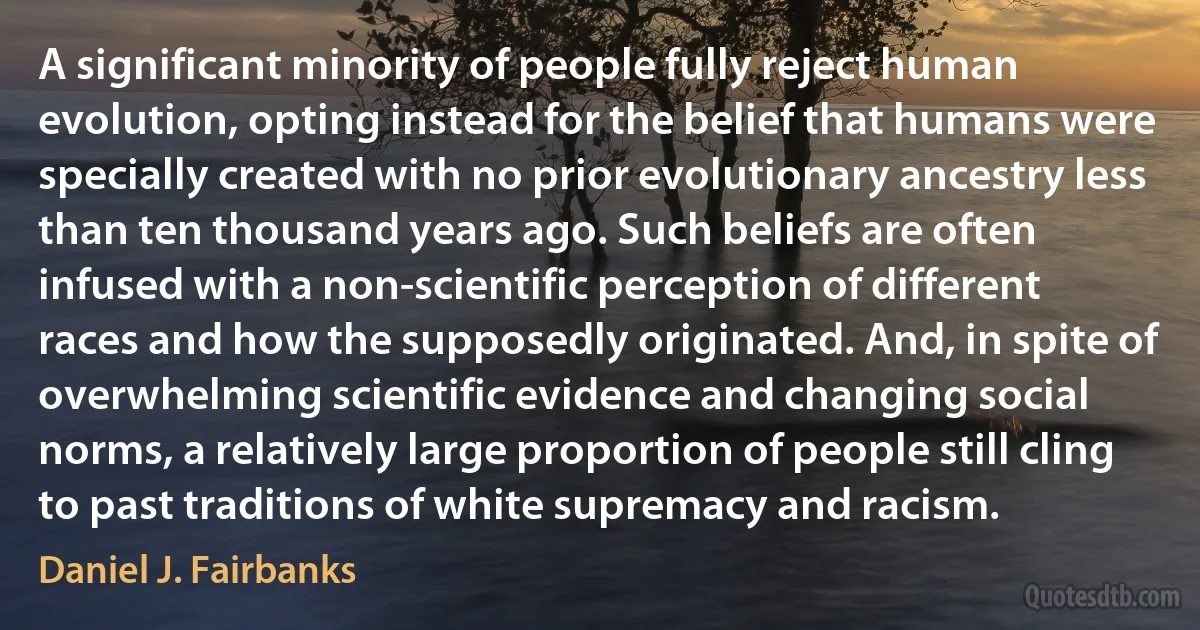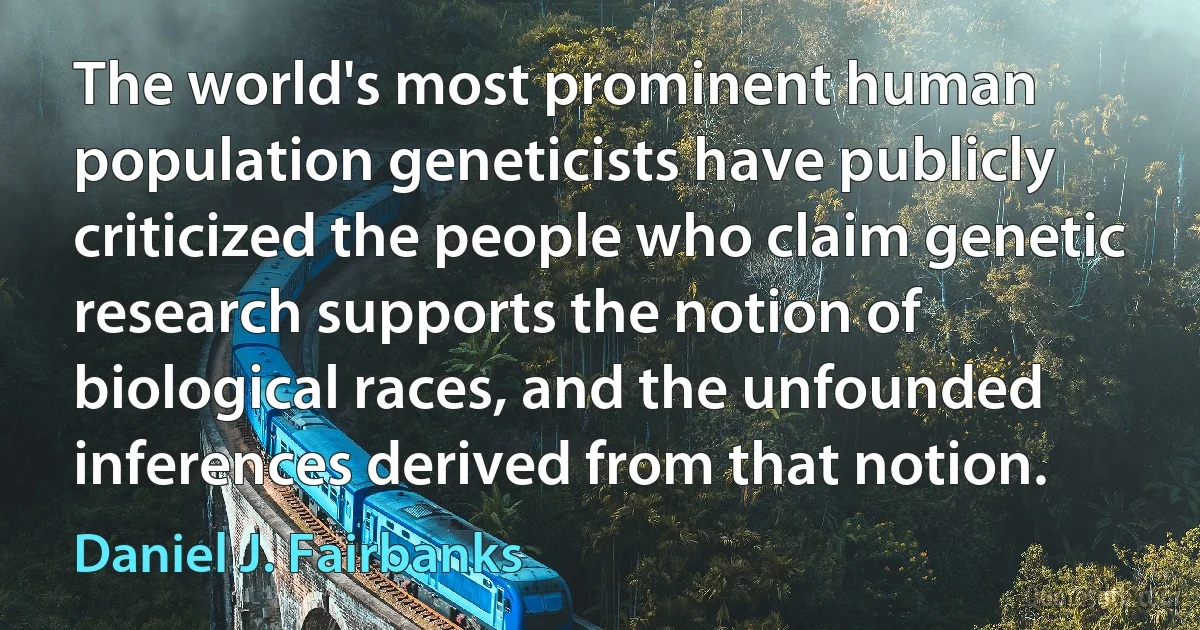Daniel J. Fairbanks quotes
Throughout the past several centuries, people have used the term race to describe groups of people in much the same way it was used in past centuries to describe groups of animals. People with ancestry from a particular region of tend to share certain inherited similar features, resembling their parents. However, the children of parents with substantially different ancestral backgrounds often have an appearance that is intermediate between that of their two parents, and in subsequent generations, the offspring may vary. In part because of the obvious similarities between animals and humans for how traits are inherited, and in part because of cultural, political, and religious traditions, notinos of racial purity and superiority have surged and ebbed yet persisted, crossing the boundaries of culture, geography, politics, and time. They are still with us today, and some of the most insidious actions based on notions of racial supremacy happened not long ago.

Daniel J. Fairbanks
So-called racial differences in IQ scores are more a consequence of disparities in socioeconomic status and the quality of education than of any genetic differences between ethnic groups. Efforts to improve educational quality and opportunity can increase the economic benefits associated with increased educational achievement.

Daniel J. Fairbanks
To understand who we are as a species, and why we vary as we do, we must examine our genetic diversity in the context of a common African origin, followed by intra- and intercontinental diasporas that transpired over a period of tens of thousands of years, culminating in an era of major migrations that reshuffled the worldwide human genetic construction over the past several thousand years and is still underway. Last, we must recognize that today's human population is far larger, more diverse, and more complex than it ever has been. We are all related, more than seven billion of us, recent cousins to one another, and, ultimately, everyone is African.

Daniel J. Fairbanks
Unfortunately, many people find it difficult to accept what current science tells us about the myth of race. It runs counter to what seem to be obvious racial distinctions, mostly in parts of the world where immigration history has juxtaposed people with discontinuous ancestral backgrounds in the same place. The racial categorizations that many of us have experienced throughout our lives have likewise inculcated a sense of racial division that is not easy to abandon. Regardless of what the science shows, the perception of race and the associated racial discrimination are unlikely to disappear soon. Furthermore, a scientific understanding of human evolutionary history challenges commonly-held religious beliefs that are based on literal interpretations of biblical history.

Daniel J. Fairbanks
Vibrant human diversity is now commonplace in major cities throughout the world. Some celebrate such a mix of human diversity. Others deplore it, preferring that so-called races be separated both geographically and reproductively. Even today, some people retain the once-popular belief that the 'white' race is superior in intellect, health, and other attributes. Although far more people reject the notion of white supremacy today than in the past, its legacy remains, as evidenced by economic stratification, ongoing segregation, and classification by racial categories. Even among those who reject the supposed superiority of a particular ethnicity over any other, the perception of distinct, genetically determined human races often persists.

Daniel J. Fairbanks
Few features of humanity are as obvious as the wide array of inherited diversity visible in our outward features. It's also evident that people whose ancestry traces to a particular geographic region typically appear similar to one another and different from other geographic regions. Moreover, we as humans have an almost innate propensity to compartmentalize nearly everything into discrete categories, even when lines that distinguish those categories are complex, blurred, or nonexistent. As an inevitable consequence, people have been subjected to categorization into what we call human races throughout much of the past several centuries.

Daniel J. Fairbanks


